As I sit to write this, I feel very burdened for many of the members of our global Nazarene church and those in their communities. In my work with Nazarene Compassionate Ministries, I support Nazarene churches as they respond to disasters, serve displaced people, or manage complex crises like the COVID-19 pandemic. In some places, these events get layered into ongoing economic, social, or political tensions. In Myanmar, a recent military coup has led to weeks of protests and hundreds of deaths at the hands of the military leaders. In the United States, increasing political polarization and racial injustices continue to build fuel for what feels like an imminent wildfire. In Lebanon, our brothers and sisters are exhausted and disheartened after years of economic collapse, political and sectarian fighting, and last year’s explosion in Beirut.
“Where there is division among people, the church must provide a bridge back to community with each other. ”
Instead of giving in to despair or increasing hopelessness, the Church of the Nazarene has begun more intentionally seeking out ways to engage congregations and communities as agents of reconciliation and peacebuilding. Where there is division among people, the church must provide a bridge back to community with each other. Where there is injustice and abuse, the church must step in to halt these dehumanizing actions.
God calls us to be a people of reconciliation, exhorting us to seek out those who are divided, those who are enemies, and to model and make peace (Eph 2:14-22*). Our call to be reconciled to God (2 Cor 5:16-21*) extends then to our relationship to others. The truth that God calls a broken people to be in unity with himself is a critical piece of the Kingdom of God, which we are called to enact in and through our churches.
We individually, and our churches, have roles to play in our communities in order to build a greater peace: the biblical Shalom, where everything is as it should be—nothing broken, everything set right.
In order to begin this process, we must come to grips with ourselves and our history in dealing with conflict and difficult issues. As individuals, we all have our own personalities and our reactions to conflict. We often find ourselves on one side of the “Fight or Flight” spectrum, either becoming combative in the midst of disagreements or avoiding them altogether. What I have found to be true is that no matter where we sit on that spectrum, we are often uncomfortable with the tension that comes alongside conflict.
A good starting point, then, is to more carefully and frequently immerse ourselves in the discomfort of conflict in order to build a resilience to the anxiety it can create.
If we will ever be agents of reconciliation in the world, we must be willing to sit between conflict parties (especially when they include us) and assist them as they struggle through the discomfort of disagreement, anger, pain, and trauma.
Instead of giving in to despair or increasing hopelessness, the Church of the Nazarene has begun more intentionally seeking out ways to engage congregations and communities as agents of reconciliation and peacebuilding. Where there is division among people, the church must provide a bridge back to community with each other. Where there is injustice and abuse, the church must step in to halt these dehumanizing actions.
God calls us to be a people of reconciliation, exhorting us to seek out those who are divided, those who are enemies, and to model and make peace (Eph 2:14-22*). Our call to be reconciled to God (2 Cor 5:16-21*) extends then to our relationship to others. The truth that God calls a broken people to be in unity with himself is a critical piece of the Kingdom of God, which we are called to enact in and through our churches.
We individually, and our churches, have roles to play in our communities in order to build a greater peace: the biblical Shalom, where everything is as it should be—nothing broken, everything set right.
In order to begin this process, we must come to grips with ourselves and our history in dealing with conflict and difficult issues. As individuals, we all have our own personalities and our reactions to conflict. We often find ourselves on one side of the “Fight or Flight” spectrum, either becoming combative in the midst of disagreements or avoiding them altogether. What I have found to be true is that no matter where we sit on that spectrum, we are often uncomfortable with the tension that comes alongside conflict.
A good starting point, then, is to more carefully and frequently immerse ourselves in the discomfort of conflict in order to build a resilience to the anxiety it can create.
If we will ever be agents of reconciliation in the world, we must be willing to sit between conflict parties (especially when they include us) and assist them as they struggle through the discomfort of disagreement, anger, pain, and trauma.
Instead of giving in to despair or increasing hopelessness, the Church of the Nazarene has begun more intentionally seeking out ways to engage congregations and communities as agents of reconciliation and peacebuilding. Where there is division among people, the church must provide a bridge back to community with each other. Where there is injustice and abuse, the church must step in to halt these dehumanizing actions.
God calls us to be a people of reconciliation, exhorting us to seek out those who are divided, those who are enemies, and to model and make peace (Eph 2:14-22*). Our call to be reconciled to God (2 Cor 5:16-21*) extends then to our relationship to others. The truth that God calls a broken people to be in unity with himself is a critical piece of the Kingdom of God, which we are called to enact in and through our churches.
We individually, and our churches, have roles to play in our communities in order to build a greater peace: the biblical Shalom, where everything is as it should be—nothing broken, everything set right.
In order to begin this process, we must come to grips with ourselves and our history in dealing with conflict and difficult issues. As individuals, we all have our own personalities and our reactions to conflict. We often find ourselves on one side of the “Fight or Flight” spectrum, either becoming combative in the midst of disagreements or avoiding them altogether. What I have found to be true is that no matter where we sit on that spectrum, we are often uncomfortable with the tension that comes alongside conflict.
A good starting point, then, is to more carefully and frequently immerse ourselves in the discomfort of conflict in order to build a resilience to the anxiety it can create.
If we will ever be agents of reconciliation in the world, we must be willing to sit between conflict parties (especially when they include us) and assist them as they struggle through the discomfort of disagreement, anger, pain, and trauma.
“The witness of the Church of the Nazarene in every community should be: “When division is rising, we go to the church to be healed.”
But peacebuilding is about much more than our personal steps toward a healthier engagement with conflict. We recognize the massive gap between the fullness of God’s Kingdom in Heaven and its reality here on earth. This is exactly why we pray the Lord’s prayer: that we could become active participants in building that Kingdom here. Where our churches exist alongside racial injustice, we build peace by advocating for just policies and standing in solidarity with those who are oppressed. Where economic and political conflicts spill into the streets, the church lifts the voice of the oppressed and works toward the cessation of violence. The witness of the Church of the Nazarene in every community should be: “When division is rising, we go to the church to be healed.”
Nazarene Compassionate Ministries has been leading efforts to develop this work in our churches. Across the globe, trainings in how churches can become peacebuilders in their communities are equipping the church. A cohort of global leaders, laypeople, missionaries, pastors, and others gathered in Belfast in early 2020 to explore these issues in relation to their home countries and settings. And the first NCM-funded peacebuilding project worked with thousands of youth in Burundi to overcome ethnic hostilities and division. In each of these scenarios, regarding every area of division or conflict, the church has pointed toward what God has in store for our world: the fullness of His peace, lived out to its fullest.
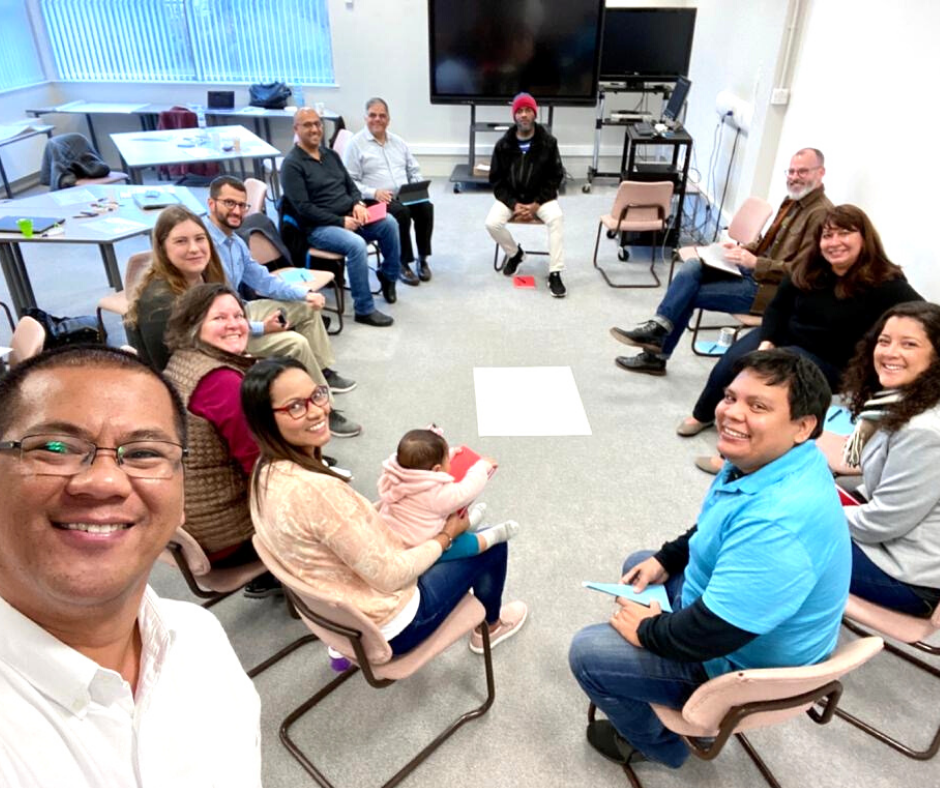
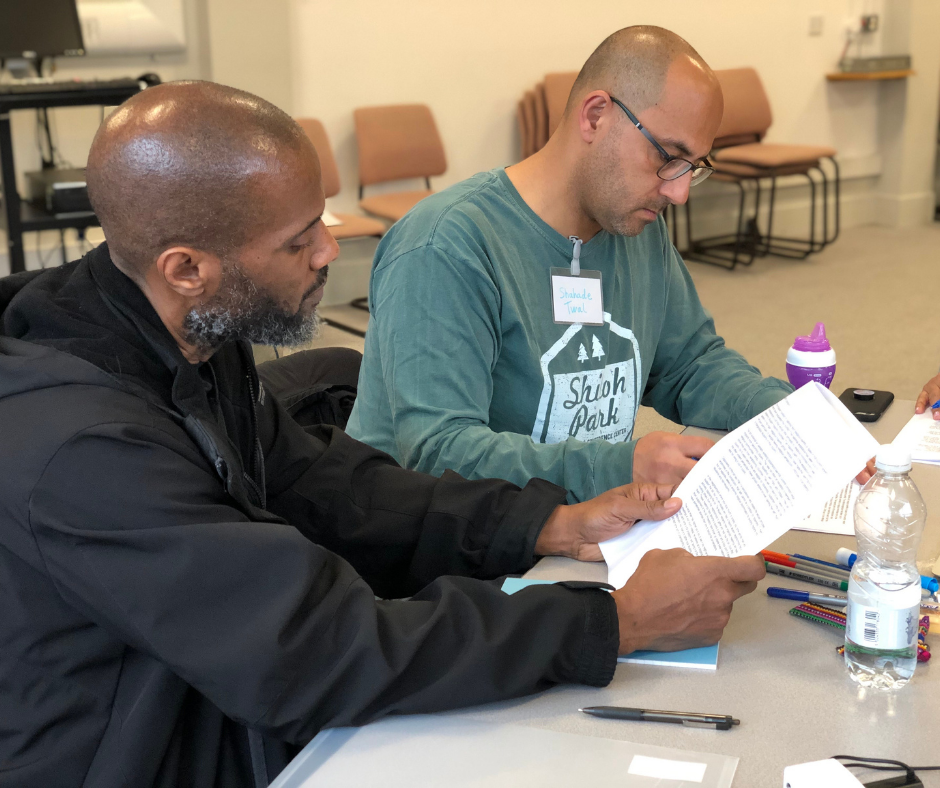
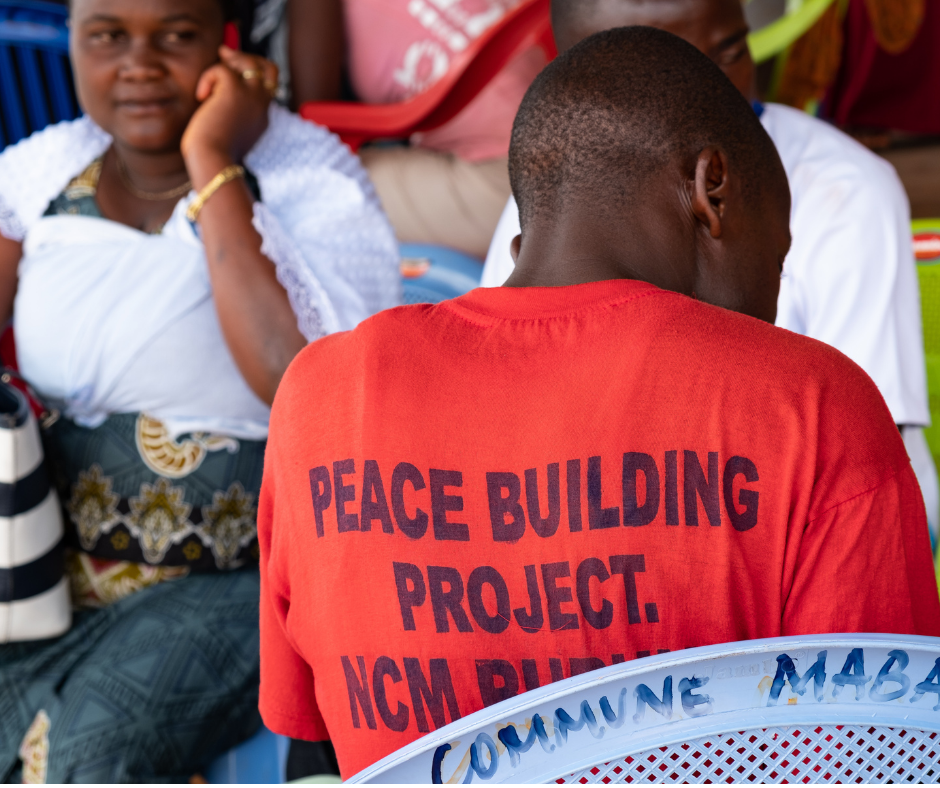
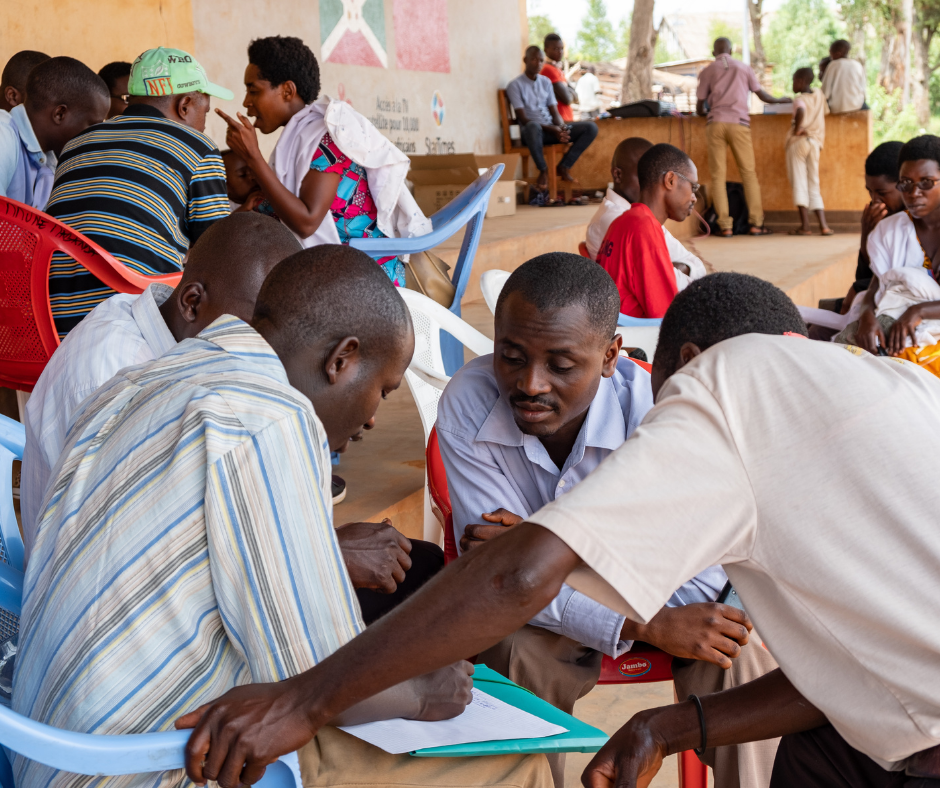
May we take seriously the call of Christ to actively heal the divisions in our world. May we take time and effort to learn how to help legitimate and perceived enemies to engage each other. May we dig in to the difficult and messy work of tension, pain, anger, and division and instead provide comfort, healing, and love while we work toward solutions to the conflicts all around us.
* Ephesians 2:14-22, NIV
For he himself is our peace, who has made the two groups one and has destroyed the barrier, the dividing wall of hostility, by setting aside in his flesh the law with its commands and regulations. His purpose was to create in himself one new humanity out of the two, thus making peace, and in one body to reconcile both of them to God through the cross, by which he put to death their hostility. He came and preached peace to you who were far away and peace to those who were near. For through him we both have access to the Father by one Spirit.
Consequently, you are no longer foreigners and strangers, but fellow citizens with God’s people and also members of his household, built on the foundation of the apostles and prophets, with Christ Jesus himself as the chief cornerstone. In him the whole building is joined together and rises to become a holy temple in the Lord. And in him you too are being built together to become a dwelling in which God lives by his Spirit.
* 2 Corinthians 5:16-21, NIV
So from now on we regard no one from a worldly point of view. Though we once regarded Christ in this way, we do so no longer. Therefore, if anyone is in Christ, the new creation has come: The old has gone, the new is here! All this is from God, who reconciled us to himself through Christ and gave us the ministry of reconciliation: that God was reconciling the world to himself in Christ, not counting people’s sins against them. And he has committed to us the message of reconciliation. We are therefore Christ’s ambassadors, as though God were making his appeal through us. We implore you on Christ’s behalf: Be reconciled to God. God made him who had no sin to be sin for us, so that in him we might become the righteousness of God.
Brandon Sipes is the Disaster Management and Humanitarian Crisis Advisor for Nazarene Compassionate Ministries. His work focuses on coordinating emergency response and recovery, in addition to the development of peacebuilding programs through the church. He lives in Ohio with his two children and his wife, who is an ordained elder in the Church of the Nazarene.


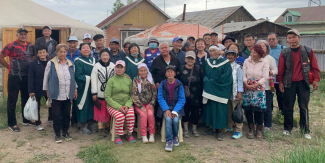
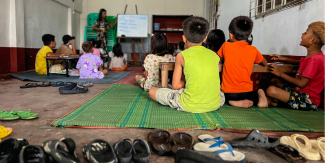


Add new comment